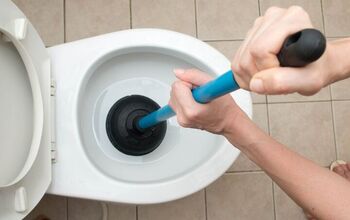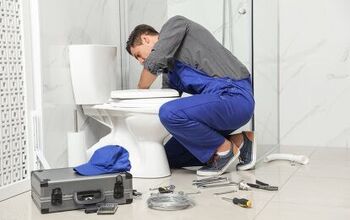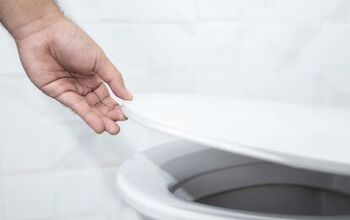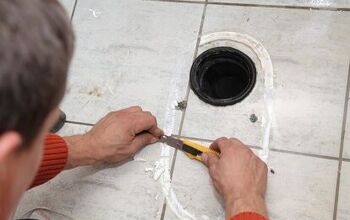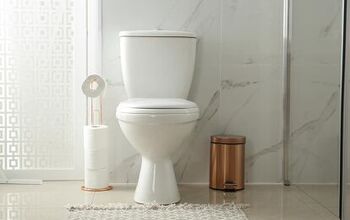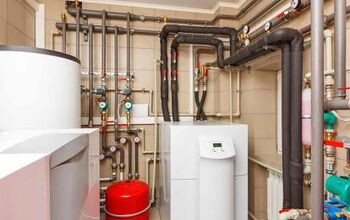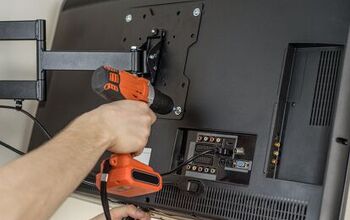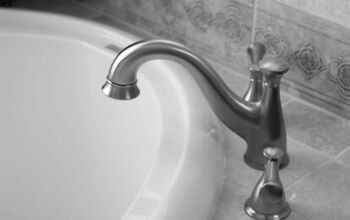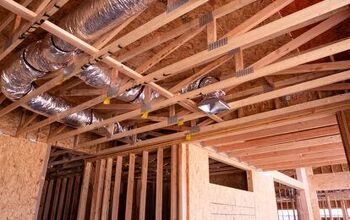Does A Toilet Use Electricity? (Find Out Now!)

When the power goes out, it makes sense that appliances and fixtures which run on electricity will be inoperable. Plumbing fixtures, on the other hand, should be fine, except if these in some way depend on electricity.
Most plumbing fixtures don’t require electricity, but there are sinks, showers, washers, water heaters, and toilets that will be rendered inoperable when there’s no power.
These days, gravity-fed waste removal systems are becoming less common, and taking their place are toilets which require electricity to function properly. These toilets have their upsides, but one glaring downside is that they don’t run when power is unavailable.
Some toilets work when the power is out while others don’t. Gravity-fed systems in most cases aren’t affected by an outage, whereas pump-requiring systems and upflush toilets are. Electric toilets can be flushed, but doing this too much may cause a septic backup.
Do You Need to Install or Repair a Toilet?
Get free, zero-commitment quotes from pro contractors near you.

Which Systems Work and Which Don’t?
Gravity-Fed Waste Removal
Gravity-fed waste removal systems aren’t affected by power outages. They rely on the natural force of gravity, as this is what moves waste downward through the drain pipe and into the sewer when the toilet is flushed.
These systems aren’t infallible, as you may have a problem in the wintertime if the temperature is extremely low and the pipes freeze. If you’re ever unable to flush, you should dump a bucket of water into the toilet, as doing so should make the toilet usable again.
Note: In the above described instance of cold pipes, you want to refrain from pouring boiling water down the drain pipe, as doing so can damage the pipe quite significantly, turning a minor issue into a plumbing disaster.
Electric Waste Removal
Electric-powered waste removal systems will be affected by a power outage. These systems utilize specially designed chambers, and in these waste gathers until it can be transferred to the sewer via an electric pump.
Without electricity, the pump won’t be operational. Furthermore, if you flush too often when the pump is inoperable, you could flood the chamber and cause an overflow. In this instance, there would be a sewerage backup somewhere—likely in your basement—and this would create a messy, repulsive, and costly situation.
Upflush Waste Removal
There are also upflush waste removal systems, and these require electricity to operate. These are usually found in basements that are below a public sewer system. In such a configuration, a gravity-fed waste removal system will not work, and such is why an upflush toilet is required.
These systems have identical flushing mechanisms, as in the water rushes from the tank to the bowl when the flushing mechanism is activated. The difference is in how the bowl water and waste are removed.
The waste is first sent to a macerator and then to a pump, and both of these components are at the back of the toilet. The macerator breaks the waste into a slurry and then the pump is responsible for getting the waste down the drain and into the sewer.
Again, since the pump requires electricity to operate, an upflush waste removal system will not work when there’s no power.
Investing in a Generator
This issue should make clear that getting a stand-alone electric generator is a good move, but what kind of generator is best for running a pump? Pumps, electric stoves, heaters, AC units, and other appliances require a considerable amount of electricity to function.
If you have a 1-HP pump, for example, a 1000-watt generator will not be sufficient. Pumps utilize electric motors, and these require a lot of energy to power up and reach full speed. But once they do get to full speed, the demand for energy drops.
If you have a 1-HP standard submersible well pump, you should get a 3-4 KW generator, as this generator is powerful enough to handle the pump’s energy demand.
You could also invest in a whole-house generator, but be sure these are costly investments. For this reason, it’s best to only install this kind of generator if you anticipate frequent outages.
What to Do When the Toilet Is Inoperable
While flushing the toilet without electricity is possible, just because you can doesn’t mean you should. As was said earlier, if the pump can’t empty the waste-holding tank quick enough, then a backup will be inevitable, creating an even worse problem than the power outage.
For this reason, when your electric-powered toilet becomes inoperable, you should have a camping toilet on hand. Modern camping toilets are easy to use, and disposing of waste is both convenient and sanitary. Just make sure the toilet is thoroughly sanitized after each use.
If the power is going to be out for weeks, then having one or two of these ready to go will be an advantage. A lot of homeowners just purchase as many camping toilets as they have regular toilets.
When There’s No Running Water
If the power outage is coinciding with a water outage, it’s in this instance when having a rain barrel is advantageous. Rain barrels are becoming more popular in the Northeast, and a good one can hold about 60 gallons of water.
Typically, the water these devices collect is used for gardening, flushing toilets, and even drinking—after its been thoroughly purified, of course. In this instance, the rain barrel’s water would be used to flush the toilet, and only a relatively small amount would be needed per flush.
There are also WaterBOB emergency water storage systems, and these heavy-duty systems can hold about 100 gallons of water, and this water will be good for about 16 weeks. This system would be installed under the bathtub, and there’s a pump so the water can be used daily.
Do You Need to Install or Repair a Toilet?
Get free, zero-commitment quotes from pro contractors near you.

Related Questions
Why is there a foul smell coming from the toilet when the power is out?
A foul smell coming from the toilet can be caused by a lot of things, but if the foul smell only manifests when the power is out, it’s likely the two problems are related.It’s already been discussed at length why you shouldn’t use the toilet when the power is out, as doing so may cause a tank backup. But a tank backup may occur even when you don’t use the system. These instances are rare and usually related to something being wrong with the local sewer system.A foul smell coming from the toilet can also indicate an empty P-trap, a loose wax ring, or a poor flange-drain connection. These malfunctions occur irrespective of whether the toilet has power or not.
Does having private water require a pump?
If your home runs on private water, then you’ll need a pump to get the water from the well. This means that private water supplies are typically knocked out in the instance of a power outage.This is something I’ve experienced personally. Of course, having a generator in the situation would make the pump operable, and such is what my family did not have.
Can groundwater be used to flush a toilet?
While groundwater can be used as toilet flushing water, having access to groundwater is again something that requires a pump. Without power, the pump will not be able to get water from the aquifer which stores the groundwater.

Matt loves everything DIY. He has been learning and practicing different trades since he was a kid, and he's often the first one called when a friend or family member needs a helping hand at home. Matt loves to work with wood and stone, and landscaping is by far his most favorite pastime.
More by Matthew Mountain










